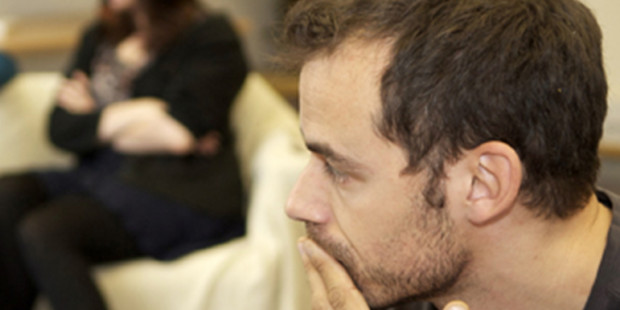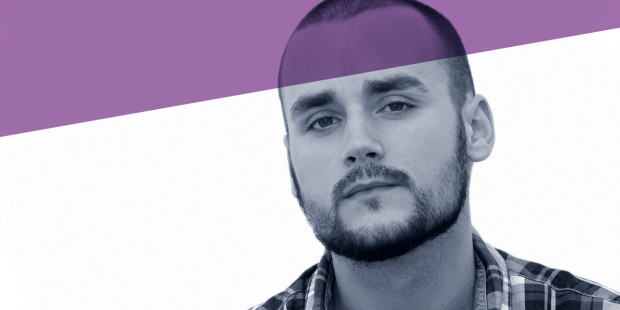Your positive status and any HIV medication you take may affect your sleeping pattern, but there are many ways to improve your bedtime habits.
How much sleep do I need?
There is no magic number of hours for the amount of sleep we need as we are all different, but current NHS guidelines note that most adults sleep for an average of seven to nine hours per night.
You should listen to your body to find out how much sleep is good for you.
Is lack of sleep dangerous?
If you’re not getting enough sleep, you will feel slow and tired all day. You might feel moody and unable to perform as well as you’re used to.
Researchers from the University of Pennsylvania believe that we build up a ‘sleep debt’ when we don’t get enough sleep over a period of time and that this can lead to serious problems when carrying out normal day-to-day tasks.
Are people with HIV more likely to have trouble sleeping?
Insomnia is classified as a difficulty in getting to sleep and/or staying asleep.
Alongside fatigue, which you’ll feel if you often don’t get enough sleep, insomnia is common in HIV positive people throughout the course of the virus.
If you have always found it difficult to sleep, HIV could exacerbate the problem, so talk about this with your doctor.
Depression and anxiety also affect your ability to sleep, co-existing as your system becomes less balanced. Unless you seek help with this, these problems can become worse as they are both exacerbated by insomnia.
Sleeping problems could also be a side effect of your HIV medication, so it’s worth talking to your doctor if you believe that this is the case.
HIV treatment and sleep
One of the more common side effects of many HIV drugs is problems with sleep.
Some drugs can cause dizziness and nausea and so you might decide to take them just before you go to bed. For many people this makes sense, but if the drugs begin to interfere with your sleeping pattern then it’s worth exploring options to tackle this.
It’s important to address these symptoms, as getting a good night’s sleep is essential to your long-term health.
The amount of sleep that we need is unique. Each of us is different, so just try to get as much sleep as you had before you began taking HIV medication.
Are there HIV drugs I should avoid if I have insomnia?
Some HIV drugs are well known for having sleep-related side effects. If you take any of the following and notice sleep problems, talk to your doctor:
- lamivudine (Epivir)
- enfuvirtide (Fuzeon)
- efavirenz (Atripla and Sustiva)
- Trizivir (abacavir + zidovudine + lamivudine)
- Kivexa (abacavir + lamivudine)
- Triumeq (abacavir + dolutegravir + lamivudine)
Sleep disturbances could also be a side effect of depression. If you're feeling a little low, now is a good time to discuss both problems with your healthcare team.
You can also discuss your problems with an online counsellor.
How to get a good night’s sleep
1. Stick to a sleep plan
Go to bed and get up at the same time every day, even on weekends, holidays and days off. A regular routine reinforces your body's sleep-wake cycle and promotes better sleep at night.
If you don't fall asleep within about 15 minutes, get up and do something relaxing. Go back to bed when you're tired. If you agonise over falling asleep, you might find it more difficult to nod off.
2. Pay attention to what you eat and drink
Don't go to bed either hungry or feeling full. Your discomfort might keep you up.
Limit how much you drink before bed to prevent troublesome midnight trips to the toilet.
Be careful with nicotine, caffeine and alcohol. The stimulating effects of nicotine and caffeine take hours to wear off and can wreak havoc on quality sleep. And even though alcohol might make you feel sleepy at first, it can disrupt sleep later in the night.
Drink a glass of water for each alcoholic drink you consume.
If you begin to notice that you might have a drinking or drug problem that affects your sleep, consider our online counselling for the support you need to make a much-needed change.
3. Create a bedtime ritual
This might be enjoying a warm bath or shower, reading a book or listening to soothing music by candlelight.
Relaxing activities support better sleep by easing the transition between wakefulness and drowsiness.
Be wary of watching the TV or using computers, phones and tablets as part of your bedtime ritual. Some research suggests that screen time and other media use before bedtime interferes with sleep.
4. Get comfortable
Spend some time creating a room that's ideal for sleeping: cool, dark and quiet. Consider using room-darkening blackout blinds, earplugs, a fan or other devices to create an environment that suits your needs.
Your mattress and pillows affect your sleep too. Shop around for what feels most comfortable to you.
If you share your bed, make sure there's enough room for two.
If you have children or pets, set boundaries on how often they sleep with you or insist on separate sleeping areas.
5. Limit daytime naps
Daytime naps interfere with your night-time sleep.
If you choose to nap during the day, limit yourself to about 10 to 30 minutes and make it during the mid-afternoon.
6. Include exercise in your daily routine
Regular physical activity can encourage better sleep, helping you to fall asleep faster and to enjoy deeper sleep.
Be careful: if you exercise too close to bedtime, you might be too invigorated to fall asleep. Instead, exercise earlier in the day.
7. Manage stress
When you're overwhelmed, your sleep is likely to suffer.
To help restore balance, consider healthier ways to manage stress. Start by getting more organised, setting priorities and delegating tasks.
Give yourself permission to take a break when you need one.
Before bed, try listing what's on your mind, and then letting it go - or leaving it for consideration on the following day, after a good night’s sleep.




